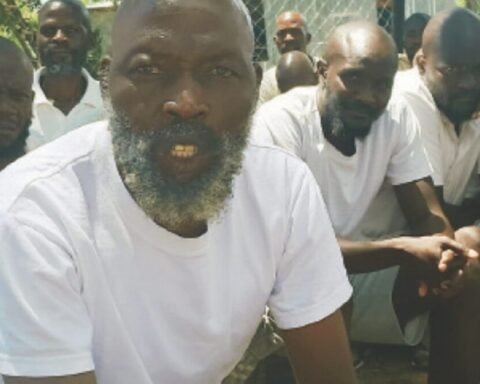In a shocking turn of events, the Zimbabwe Gender Commission (ZGC) and the Zimbabwe Republic Police (ZRP) are facing severe criticism for their failure to take decisive action against Prophetic Healing And Deliverance Ministries founder, Walter Magaya, following serious rape allegations made against him.
On Sunday, March 10th, (first Sunday after international women’s day) during a church service at the PHD Ministries, a group of six brave women disrupted the proceedings to protest against Magaya, accusing him of rape. The situation quickly escalated into violence, with some of Magaya’s senior staff members reportedly threatening and unleashing violence on the protesting women. One of the women targeted by Magaya’s staff is not only a rape victim but also alleges that Magaya defrauded her family of USD 500,000.
Despite these serious allegations and the disturbing scenes captured on camera, both the ZGC and the ZRP have come under fire for their lack of action. Reports suggest that Magaya’s influence extends even to the police at Waterfalls station, with victims allegedly being intimidated and silenced. This raises serious concerns about the independence and effectiveness of law enforcement agencies in Zimbabwe.
The Zimbabwe Gender Commission Act, which establishes the ZGC, empowers the commission to investigate violations of rights relating to gender and to recommend appropriate action. However, despite these clear mandates, the ZGC has been accused of being toothless and ineffective in addressing complaints and allegations of gender-based violence, particularly those involving powerful individuals like Magaya.
Section 246 of the Act outlines the functions of the ZGC, including investigating possible violations of rights relating to gender, receiving and considering complaints from the public, and recommending affirmative action programs to achieve gender equality. However, it appears that the ZGC has failed to fulfill these functions effectively in the case of Magaya.
Furthermore, the ZRP’s failure to investigate and prosecute Magaya despite the serious allegations against him raises questions about the impartiality and integrity of the police force. The victims of Magaya’s alleged crimes deserve justice, and it is the duty of law enforcement agencies to ensure that perpetrators are held accountable for their actions.
In light of these revelations, civil society organizations and human rights activists are calling for urgent action to hold Magaya accountable and to ensure that victims of gender-based violence are given the support and justice they deserve. It is imperative that the ZGC and the ZRP demonstrate their commitment to upholding the rule of law and protecting the rights of all Zimbabweans, regardless of their status or influence. Anything short of this would be a betrayal of the trust placed in these institutions by the people of Zimbabwe.
The failure of the ZGC and the ZRP to act decisively in the face of such serious allegations sends a dangerous message that powerful individuals are above the law and can act with impunity. This not only undermines the credibility of law enforcement agencies but also perpetuates a culture of silence and impunity around gender-based violence.
The Zimbabwe Gender Commission Act was enacted to remove barriers to the attainment of full gender equality and to provide a mechanism for addressing violations of rights relating to gender. However, if the commission fails to take action in cases as egregious as the allegations against Magaya, it undermines its own mandate and fails to fulfill its duty to the people of Zimbabwe.
Furthermore, the lack of accountability in this case sets a dangerous precedent and emboldens perpetrators of gender-based violence to continue their abusive behavior without fear of consequences. It is essential that the ZGC and the ZRP take immediate and decisive action to investigate the allegations against Magaya and ensure that justice is served for the victims.
In addition to holding Magaya accountable for his actions, it is crucial that steps are taken to address the broader issues of gender-based violence and impunity in Zimbabwe. This includes providing support services for victims, raising awareness about the prevalence of gender-based violence, and strengthening the legal framework to prevent and punish such crimes.
The international community also has a role to play in holding Zimbabwe accountable for its obligations under international human rights law. It is incumbent upon the government to uphold the rights of all its citizens, regardless of gender, and to ensure that perpetrators of gender-based violence are brought to justice.
Sadly the failure of the Zimbabwe Gender Commission and the Zimbabwe Republic Police to take action in the face of serious allegations against Walter Magaya is a grave injustice to the victims of gender-based violence. It is imperative that these institutions fulfill their mandates and ensure that justice is served for all victims of gender-based violence in Zimbabwe. Anything less would be a betrayal of the fundamental principles of justice and equality.







